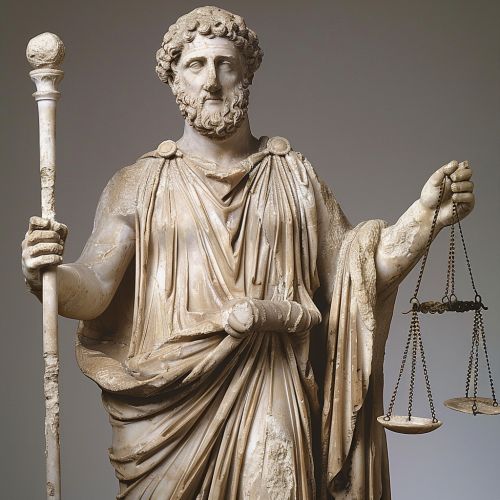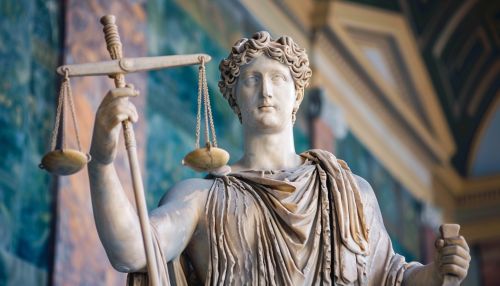Aeacus
Mythological Background
Aeacus, known in Greek mythology as one of the three judges of the dead, was a son of Zeus and the nymph Aegina. His mythological significance extends beyond his role in the underworld, as he was also a revered king of the island of Aegina. Aeacus' lineage and deeds have been subjects of various ancient texts, including works by Homer, Pindar, and Ovid.
Early Life and Lineage
Aeacus was born on the island of Aegina, which was named after his mother. According to myth, Zeus transformed himself into an eagle and abducted Aegina, taking her to the island where Aeacus was conceived. Aeacus' divine parentage bestowed upon him a unique status among mortals, often depicted as possessing exceptional wisdom and piety.
Kingship of Aegina
As the king of Aegina, Aeacus was known for his just and fair rule. His reign was marked by prosperity and the establishment of laws that were considered exemplary. The island itself, initially uninhabited, was populated by ants transformed into humans by Zeus at Aeacus' request, a mythological event known as the creation of the Myrmidons.
Role in Greek Mythology
Aeacus' significance in Greek mythology is multifaceted. He was often invoked in prayers and oaths due to his reputation for fairness. His role as a judge in the underworld, alongside Minos and Rhadamanthus, underscores his importance in the afterlife. Aeacus was responsible for judging the souls of Europeans, determining their fate in the afterlife.
Aeacus and the Gods
Aeacus' relationship with the gods was one of mutual respect and reverence. He was often called upon to mediate disputes among the gods, a testament to his impartiality and wisdom. One notable myth involves Aeacus assisting Poseidon and Apollo in building the walls of Troy. His contributions were so valued that the gods granted him the ability to summon rain during times of drought.
Descendants and Legacy
Aeacus' legacy continued through his descendants, who played significant roles in various Greek myths. His sons, Peleus and Telamon, were notable heroes. Peleus was the father of Achilles, one of the central figures in Homer's Iliad, while Telamon fathered Ajax the Great, another prominent warrior. Aeacus' lineage thus intertwined with the epic narratives of Greek mythology.
Cult and Worship
Aeacus was venerated as a hero and a demigod, with cults dedicated to his worship. The Aeaceum, a sanctuary on Aegina, was a focal point for his cult. Pilgrims would visit the site to offer sacrifices and seek Aeacus' favor, particularly in matters of justice and arbitration. His worship extended beyond Aegina, with evidence of his cult found in other parts of Greece.
Artistic Depictions
Aeacus has been depicted in various forms of ancient art, including pottery, sculpture, and mosaics. These depictions often emphasize his role as a judge of the dead, portraying him with symbols of justice such as scales or a staff. His iconography also includes representations of his divine parentage, with elements that highlight his connection to Zeus and Aegina.


See Also
- Zeus
- Aegina (mythology)
- Myrmidons
- Minos
- Rhadamanthus
- Peleus
- Telamon
- Achilles
- Ajax the Great
- Homer's Iliad
